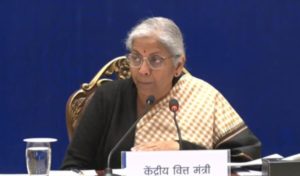Bangladesh PM calls CAA ‘internal matter’ but ‘unnecessary’

Bangladesh Prime Minister Sheikh Hasina (FIle Photo/Facebook)
New Delhi: Even as Bangladesh Prime Minister Sheikh Hasina believes that Citizenship Amendment Act (CAA) is India’s “internal matter”, she has described the law, which aims to grant citizenship to persecuted religious minorities of the three neighboring Muslim countries, “unnecessary”.
Hasina said this in an interview to the Gulf News at Abu Dhabi, where she is on a visit to hold high-level bilateral meetings.
“We don’t understand why (the Indian government) did it. It was not necessary,” Hasina told Gulf News.
“Bangladesh has always maintained that the CAA and NRC are internal matters of India. The Government of India, on their part, has also repeatedly maintained that the NRC is an internal exercise of India and Prime Minister Modi has in person assured me of the same during my visit to New Delhi in October 2019,” she added.
The CAA passed by Parliament on December 11, 2019, grants citizenship to Hindu, Sikh, Buddhist, Jain, Parsi and Christian refugees who fled from religious persecution in Pakistan, Bangladesh and Afghanistan before December 2014.
The law came into effect last month. The Opposition and some youth organizations in India have been protesting against the CAA. Some protests turned violent too.
Soon after the CAA was passed, Dhaka cancelled its high-level visits and meetings in New Delhi. Hasina’s description of the law now as “unnecessary” is in line with the concerns in Bangladesh establishment that the CAA might trigger reverse migration of Bangladesh illegal immigrants living in India.
However, Hasina in her interview said there was no reverse migration from India to Bangladesh yet.
Dhaka has also denied there has been any religious persecution of Hindus in Bangladesh. “But within India, people are facing many problems,” Hasina said vaguely to the Gulf News.
Officials in the Ministry of External Affairs, however, insisted that the CAA is an internal matter. “Necessary or unnecessary is a matter of perception. It has been passed by Parliament,” said an official who did not want to be quoted.
IANS




